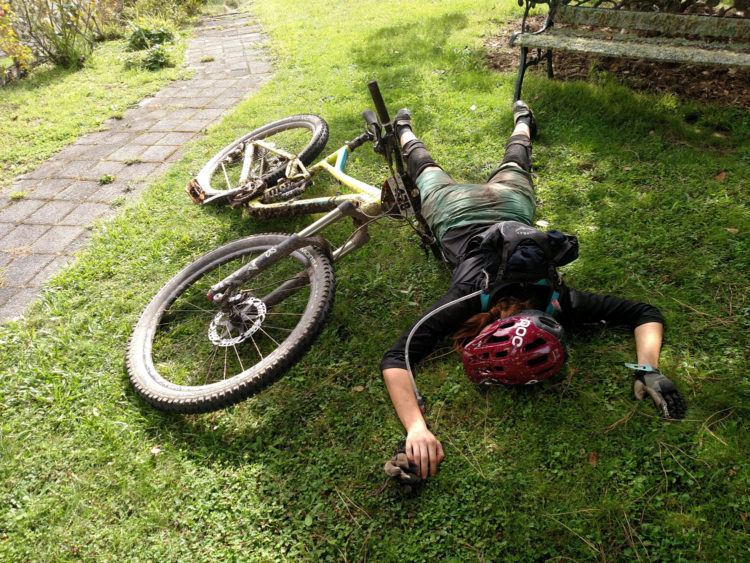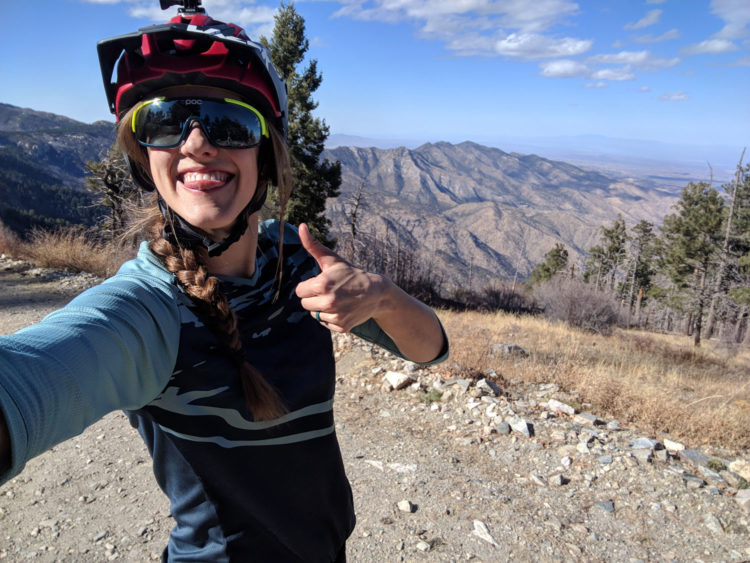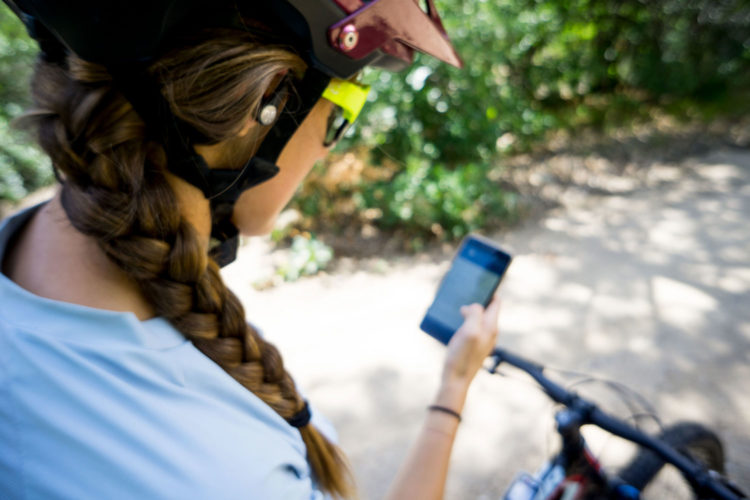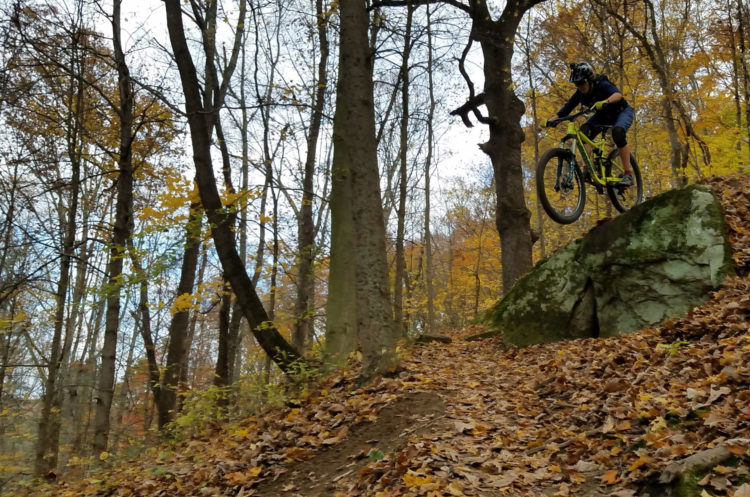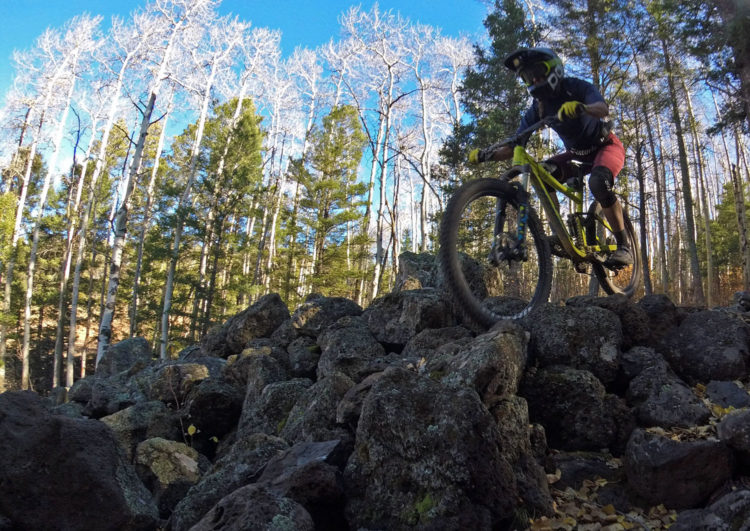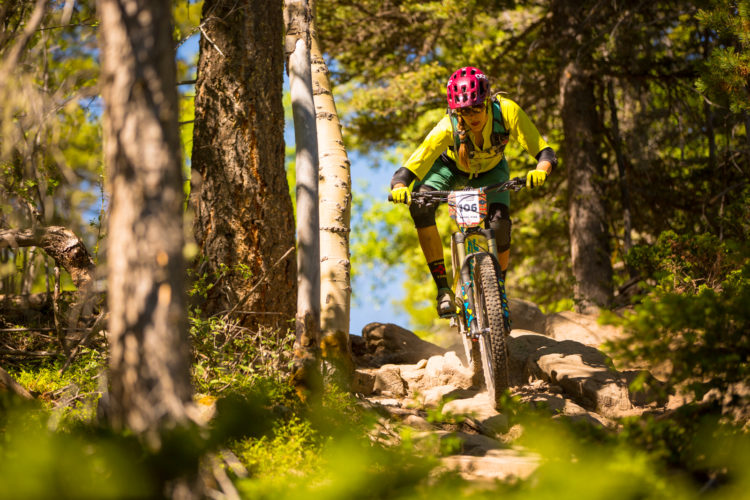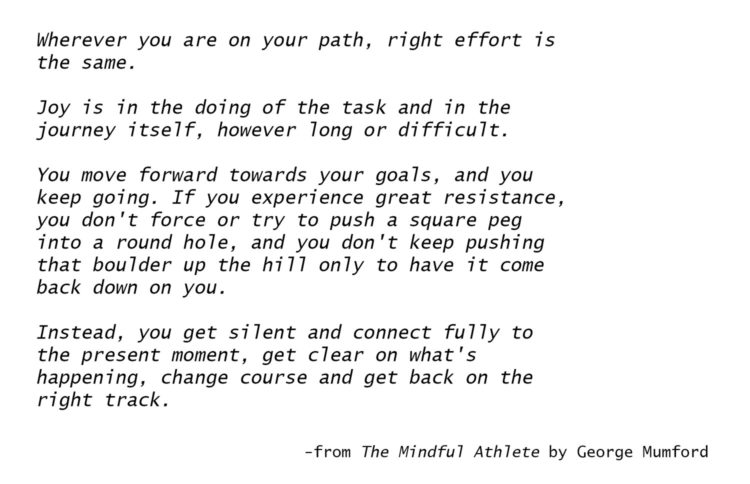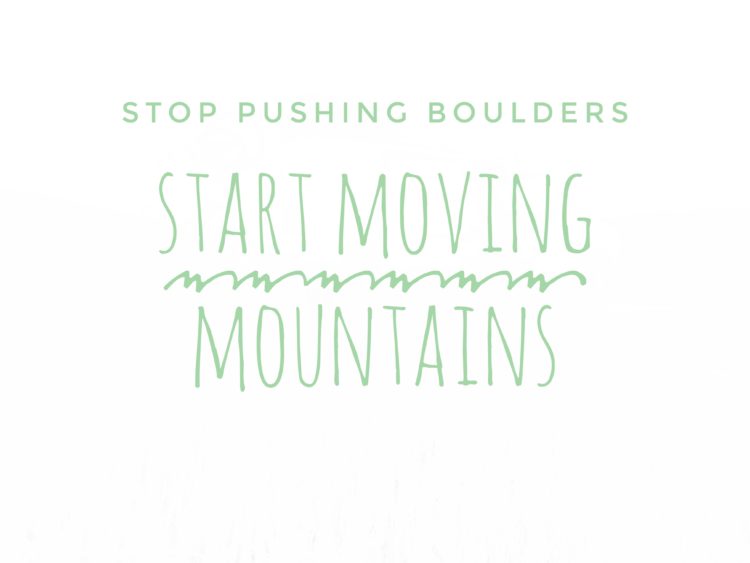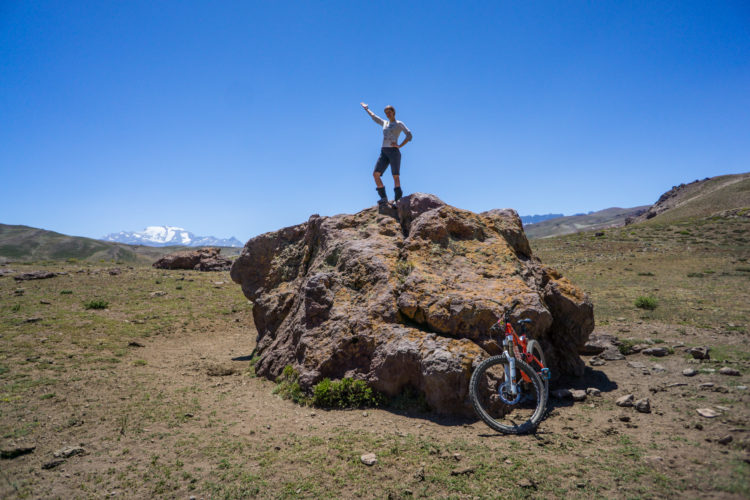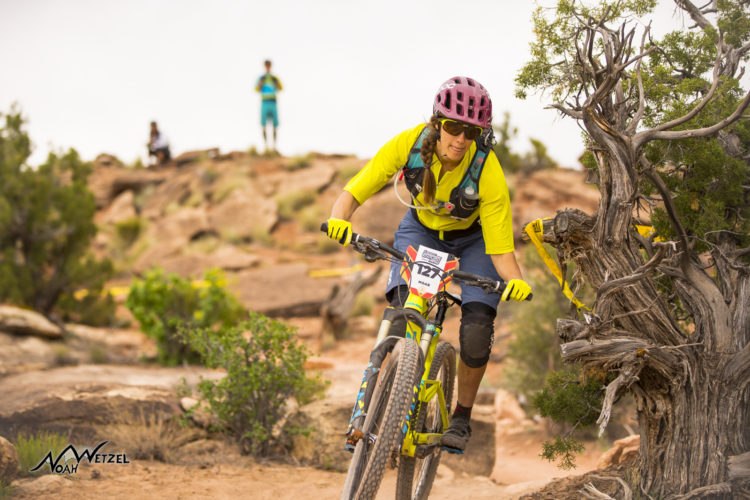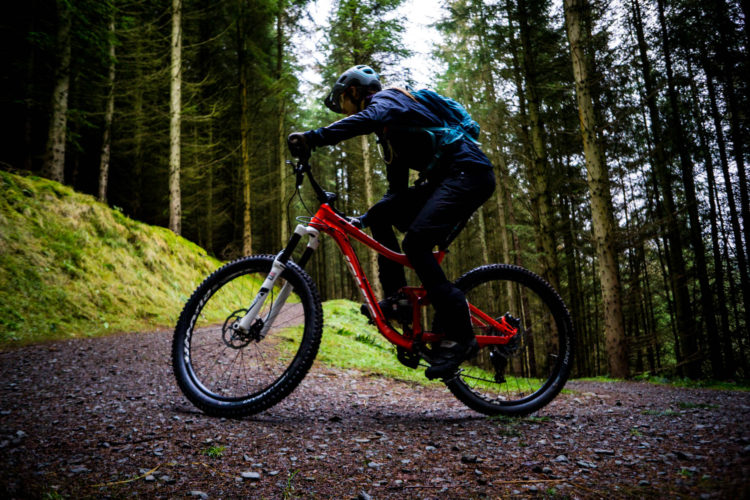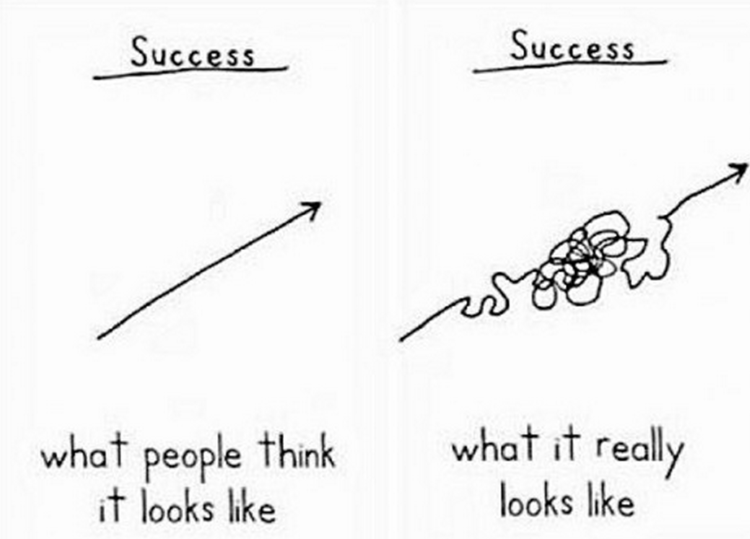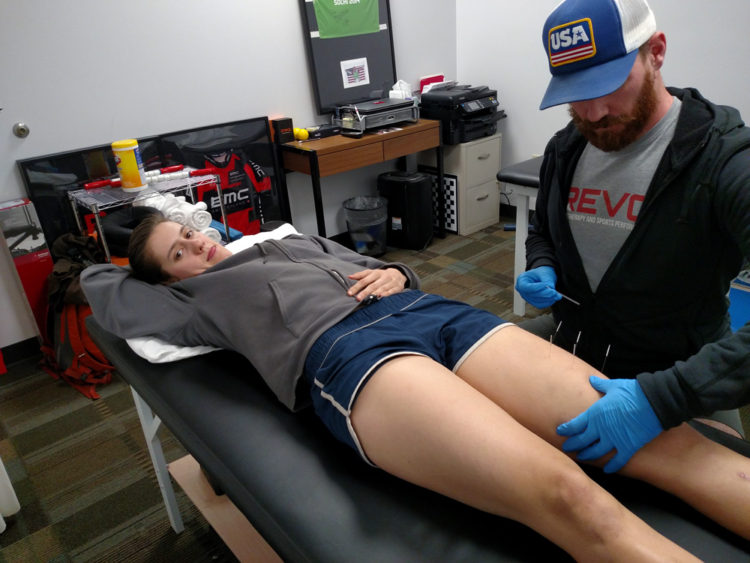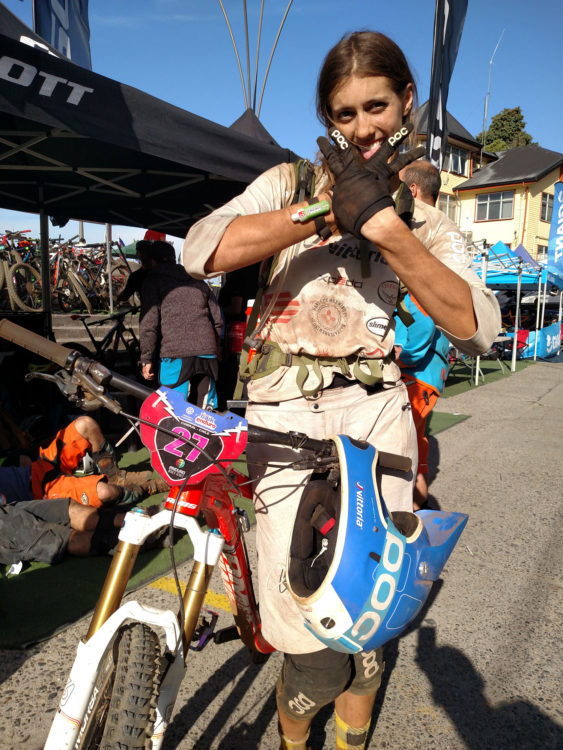My shins are a mess. I get it.
Last fall, I was in my high school best friend’s wedding, and before the ceremony I spent half an hour applying concealer to my legs, because, while I’m not embarrassed by my shins, it felt like the right thing to do since weddings are supposed to be about the happy couple and not “why does bridesmaid #3 look like she was recently attacked by a hippogriff.”
Outside of formal occasions, though, I don’t spend much time thinking about my scarred and battered shins because I spend a lot of time with mountain bikers so I forget that normal people actually don’t look like they’ve recently fended off a horde of machete wielding squirrels. These scars, these bumps, these bruises, the weird crunching feeling when I run my fingers up and down my shin bone — that’s just the way it is.
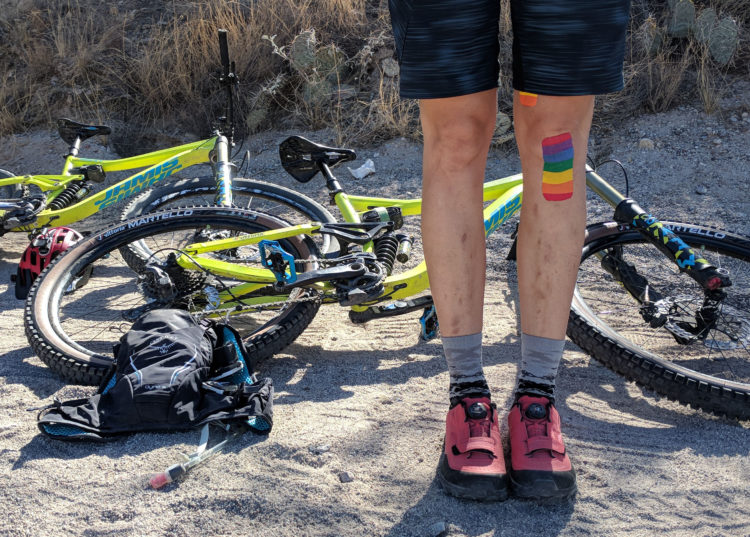
Using this photo in my post three weeks ago was actually the impetus for writing this one because YIKES.
But every now and then someone will bring them to my attention and it’s a little jarring. Maybe because it’s someone completely random commenting about my body (I’m looking at you, Houston TSA agent…), or maybe it’s just the look of pain and revulsion that often accompanies these encounters. Like, “does it hurt?” Last year, after racing the first Enduro World Series race of the year and crashing my face (and shins) off, I walked into a little grocery store in rural Tasmania and the teenage boy stocking milk looked at my legs and said “what happened to you? Are you okay?”
And I was like “uuuummm you mean this? I’ve just spent the last four years falling off my bike, it’s no biggie.”
Also, kind of none of your business? Also, I’m obviously fine enough to be walking in here and buying a gallon of milk, so, like, maybe back off? Also, you’re like 14? Also, maybe I’m over-reacting?
I never know how to handle these conversations. Maybe the person really is concerned about my well-being, in which case I guess I have an obligation to assure them that, no, my husband does not beat me around the shins (or anywhere else, for the record). Then again (and I think this is more likely) maybe they are just curious. Which is okay, I guess, I’m not ashamed of these legs. But what if I were? Would comments like this send me into a tailspin of self-loathing?
Ultimately, it just feels out-of-line to be fielding questions about my body from complete strangers, even if it is just my legs and even if they are a bit of a mess.
But I have to admit that all these people who ask questions about my shins have a point. It’s true — my legs are a mess. I have tan lines from being held together by Rocktape for the past three years, scars from all the times I was too stubborn to get stitches when I probably should have (but going to the ER is really inconvenient and sometimes gets in the way of dinner), smaller scars from a million run-ins with my pedals, one particularly deep dent from a MRSA infection, and at any given time usually at least one bruise from walking into a coffee table because while I might be a professional mountain biker, I am terrible at circumnavigating coffee tables.
If every scar is a story, my shins are a goddamn anthology, and you know what? I’m okay with that. I’m even kind of proud of it. So, to the next person who asks me about my shins, prepare yourself, because I’m going to tell you the whole book.
I’m going to tell you about how I picked up a MRSA infection five days before my first ever Enduro World Series race and how I had to go to the ER to get the abscess drained and how it was horrible, but I still raced anyway because I’m kind of an idiot. I’m going tell you about the time in 2014 when I crashed TWICE in the same damn corner, exactly the same way, two days apart and left brake-lever shaped bruises on my shins BOTH TIMES (see above photo). I’m going to tell you about Oklahoma in 2017 when I crashed and put a gigantic hole in my shin but didn’t notice until I took my knee pads off four hours later because, like, I guess I can’t feel my shins anymore? I didn’t get stitches for that one either because the closest ER was two hours away, so that hole, it’s still there. I’m going to tell you about all the rocks that have flown up and hit me in the shins, and all the coffee tables and bath tub edges I’ve walked into, and the time I tripped trying to get back into the van and mashed my shin on the running board. I’m going to tell you about all the other little scars of unknown origins but, well, probably I crashed my bike? I’m going to tell you about green briar and prickly pears and multi-floral rose and cholla and all the other plants that have reached up and left their mark on these legs.
I guess I’m going to tell you my whole life story, because it’s written on my legs. While I’m at it, I’ll tell you about all the other strong-ass, scarred up women I ride bikes with. “This is normal where I come from,” I’ll tell you.
So, to the next person who asks me about my shins, I hope you have time. It’s a long story and I’m going to tell you the whole damn thing, because, after all, you asked.

